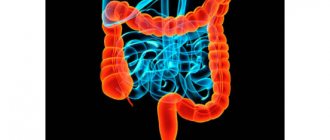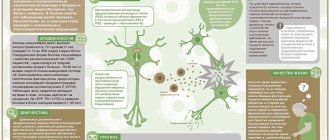When planning a child, a woman, expecting a miracle, always listens to her body with the hope of recognizing the very first signs of pregnancy. It is very important for every woman to find out about a planned or unwanted pregnancy as early as possible, since this makes it possible to prepare for upcoming motherhood or take measures to terminate it.
For most women, a missed period is considered a suspected pregnancy, but many doctors are confident that this is not entirely true. Delayed menstruation can also occur for other reasons, including gynecological diseases, depression, hormonal imbalance and others.
Experts assure that if a woman wants to find out about early pregnancy, she needs to contact a gynecologist, undergo a series of laboratory tests, an ultrasound of the pelvic organs, which will accurately confirm or refute the alleged pregnancy.
However, many women rely on their intuition and, just a few days after unprotected intercourse, are assured of pregnancy. Doctors are quite skeptical about the early signs of pregnancy and assure that it is impossible to feel it in the first week, since it will take at least 7 to 10 days for the egg to be fertilized and implanted in the uterine cavity. Some women still claim that they learned about their impending pregnancy already in the first week.
Signs of early pregnancy
In the first days after fertilization, when the time has not yet come to determine pregnancy based on the main sign - delayed menstruation and a positive pregnancy test, the woman is already looking for characteristic changes in herself. Not every woman has them at such early stages. But still, some nuances occurring in the body can be noticed.
Knowing that ovulation occurs 12-14 days after the last menstruation, and pregnancy can occur during this period, a test for conception can be done 10 days after ovulation.
Until this time, the cervix becomes loose, which leads to an increase in vaginal discharge, but only if pregnancy has occurred - fertilization of the egg has occurred. This is the time that is given to the egg to move to the uterus.
After the fertilized egg settles in the uterus, changes in the body of the expectant mother will also appear along with it. After a few days, the expectant mother may begin to experience toxicosis, but everyone’s body is different, so this symptom does not occur in everyone. Therefore, you can first check your basal body temperature - during gestation it will be high.
In addition, there are the following first symptoms of pregnancy in the early stages:
- Increased salivation. It appears already in the first week and occurs not only at the sight of food or a hungry state, but also after eating food.
- Leg cramps. At this stage, calf cramps often occur, which occur during night sleep.
- Metallic taste in the mouth. It also occurs in the first week of pregnancy and occurs regardless of food intake.
- Pigmentation. Also, a week after the start of pregnancy, the white line of the abdomen from the navel and below becomes noticeably darker, pigment spots appear on the face and along the hairline.
- Bloating and constipation also begin in the first week, regardless of the food consumed. Sometimes slow-witted pregnant women are bothered by diarrhea.
All these signs occur very early, and not every woman can notice them. But they are quite noticeable, and if the expectant mother wants to find out about her interesting situation, it is enough to take a closer look at her sensations and processes in the body.
Implantation bleeding
Implantation, or fetal, bleeding is one of the earliest symptoms of pregnancy. A mature egg is released from the ovary into the fallopian tube. There it is fertilized by a sperm and continues to move towards the uterus to attach to it and develop. This process may take up to two weeks.
When the egg enters the uterus and begins to implant, it ruptures the endometrium (the cells lining the walls of the uterus). Damaged endometrium naturally leaves the body, causing implantation bleeding.
After sexual intercourse, if conception is successful, 6–12 days will pass when spotting may appear. These pregnancy symptoms are noticed by no more than 30% of women.
Photo: pexels.com
First signs of pregnancy before missed period
Before the expected menstruation begins, a pregnant woman experiences many symptoms characteristic of this period, which are very difficult to miss. Before a missed period, the following signs are noticeable:
- Feeling of malaise - 6-7 days before your period, a sign of a cold may appear, but the cold does not develop beyond the feeling of malaise. The woman gets tired quickly and often has attacks of weakness.
- Emotional instability - frequent mood swings - sometimes joy, sometimes tears. This symptom appears in women who are emotional due to their temperament.
- Drowsiness or insomnia – there is a constant feeling of lack of sleep; a woman wants to sleep all the time, even if she has slept for 12 hours. Or the opposite phenomenon – insomnia. Waking up in the middle of the night, she can no longer sleep.
- Changes in sexual desire - it can move either in one direction or in the completely opposite direction. And this can last throughout pregnancy.
- Heaviness in the lower abdomen - it appears due to the influx of a large amount of blood into the pelvic area. Sometimes there is a feeling of fullness in the pelvic area, which does not disappear after the intestines are released.
- Tingling in the uterus - Tingling in or near the uterus occurs from time to time. This occurs due to hormonal surges and the attachment of the embryo to the wall of the uterus.
- Lower back pain - first you feel tingling in the back and lumbago in the lumbar region, radiating to the legs. Lower back pain occurs immediately after pregnancy, and a burning sensation often appears.
- Headache – it bothers a woman throughout the day and subsides in the evening. The onset of a headache indicates pregnancy even at a short period of time.
- Increased sensitivity of the mammary glands - even accidentally touching the breasts causes severe pain to the woman. Sensitivity is individual for every woman, but pain always happens - it is precisely by this that pregnancy is determined in the early stages. Rarely, a decrease in breast sensitivity occurs - this happens in those women whose sensitivity has always increased before menstruation.
- Chills and fever - during the day, the feeling of heat alternates with chills several times, while there is no real rise in temperature. These are internal sensations independent of external factors.
- Increased appetite – a woman’s feeling of hunger increases or an unbearable craving arises to eat certain foods. During a meal, the feeling of fullness does not come for a long time. The taste changes, you want to eat a product that was not previously on the menu.
- Nausea - in the early stages, nausea can also occur - it depends on the individual characteristics of the woman. As a rule, one begins to feel sick in the morning, an acute dislike for certain foods arises - one begins to feel sick even at the mere memory of them. Heartburn and stomach pain often occur.
- Increased sensitivity to odors - already in the early stages, an aversion to odors begins, especially for food and perfumes, which the woman previously liked. On the contrary, chemical smells attract a woman's attention and seem fragrant to her. This sign of pregnancy is noted individually; all people smell differently.
- A feeling of discomfort in a sitting position is noted already in the early stages; it is difficult for the expectant mother to choose a position to sit comfortably.
- Allergies can develop from the beginning of pregnancy, and to substances to which there was no allergy before.
In addition to the above, there are other signs that appear in the early stages. There is slight swelling in the hands due to salt retention in the body. Also a characteristic sign is frequent urge to go to the toilet during the day and especially at night.
Blood pressure may decrease, which causes weakness, dizziness and headaches. Even before the onset of a missed period, you can determine whether the long-awaited pregnancy has occurred or not.
First signs of pregnancy. Video:
When does pregnancy occur?
For pregnancy to occur, ovulation must occur - the release of a mature egg from the follicle. Each woman has an individual period of time. Typically, the egg matures 2 weeks before the expected period. But under the influence of many factors (hormonal imbalance, stress, medication, etc.), the cycle is disrupted, so you can get pregnant at the beginning of the cycle, in the middle, shortly before your period.
That is why it is recommended to use contraception (if you are not planning to conceive) on any day of the month, even if sexual intercourse is performed in the presence of bleeding.
Signs of an ectopic pregnancy in the early stages
The presented pathology does not happen very often and in 65% of cases it ends successfully, but not with the birth of a baby, but with timely surgical intervention.
This happens because the egg is not attached to the walls of the uterus, but for some reason does not reach it and remains in the wrong place. There it begins to develop, but not for long, but until a certain time.
Ectopic pregnancy has three types depending on the place where the egg is implanted:
- Pipe. The implantation of the egg occurred inside the fallopian tube.
- Ovarian. Stopped in the ovary.
- Abdominal. It came out into the abdominal cavity and became entrenched in it.
If this pathology is not detected in time, then everything can end disastrously for a woman: from the development of infertility to death. With timely diagnosis, it is possible to remove the fertilized egg without consequences and while maintaining all reproductive functions. The most common is tubal pregnancy, the others are less common.
With an ectopic pregnancy, the first signs of embryo attachment also appear, as with normal conception. There will be a delay in menstruation, and there will be two lines on the test, as well as toxicosis and mood changes.
It is necessary to pay attention to the brightness of the stripes on the test - the control strip will not be too bright, and when repeated testing after a couple of days, it will completely disappear.
If this is detected, then immediate consultation with a doctor is required for urgent surgery to remove the ectopic fetus.
In addition to these signs, there are also specific symptoms of short term ectopic pregnancy:
- Bloody discharge is dark brown or brown in color. But this may not be the case if blood collects in the abdominal cavity.
- Pain in the lower abdomen of a cutting nature, localized in the area where the fetus develops. The pain intensifies when changing body position or moving.
- There is general weakness, chills and malaise.
- There is also an increase in body temperature, and the basal temperature is higher than always.
- With massive blood loss, dizziness and fainting occur, and a decrease in blood pressure occurs.
The life and development of the fetus is not preserved during surgery; the emphasis is on preserving the life and health of the woman. Up to 6-8 weeks of ectopic pregnancy, you can remove the fertilized egg without adverse health consequences.
Therefore, once you are convinced of unfavorable symptoms, you should immediately visit a doctor or call an ambulance.
Folk definitions
The people had their own principles confirming the existence of the “position” of the expectant mother. They can also be considered early indicators of successful conception.
Nesting syndrome
In the first weeks of pregnancy, a woman begins to behave a little differently: she carefully cleans the house, puts things in order, and begins to buy things to increase coziness and comfort. She can also quit bad habits and start eating right. All this is popularly called “nesting syndrome.” A woman, due to her nature, on a subconscious level begins to prepare for the arrival of a baby in the same way as birds begin to build a nest before laying eggs. Natural instincts clearly begin to influence a woman who does not even suspect that she is pregnant.
Cravings for something salty
Our grandmothers easily determined the presence of pregnancy if a woman ate salted or pickled cucumbers and tomatoes with appetite. In addition, the same assumption was made when eating salted and dried fish. Having noticed such oddities as “craving something salty,” bold statements were made to the effect that the woman was in the process of giving birth.
Drooling
If a woman’s salivation increases, which becomes more noticeable at night or in the morning (after waking up), then suspicions of pregnancy may be well founded. People have long considered this symptom to be a sign of pregnancy.
In medicine, this case is called “ptyalism” and during pregnancy it appears due to hormonal changes. Increased salivation is considered the first sign of the onset of toxicosis.
Signs of early miscarriage
Unfortunately, sometimes a long-awaited pregnancy ends with a diagnosis of “frozen”. If in 20-year-old women this happens in 10 cases out of 100, then in 45-year-old women this happens in 50 cases. The older the mother is, the higher the risk of fetal death in the womb.
Women who have gone through this should be thoroughly examined and not only identify the cause, but also eliminate it. After treatment, 90% of women safely give birth to a healthy baby.
A frozen pregnancy is the arrest of fetal development and its death before 28 weeks from fertilization. There are many reasons for this pathology: genetic “misunderstandings”, congenital diseases, maternal infections, poor environment, as well as smoking, alcohol and drugs. In order to promptly detect fetal death, you should know what signs appear during this process.
The very first sign is red or brown vaginal discharge. There may not be any pain. This is a good reason to consult a doctor and, if an ultrasound examination confirms the death of the fetus, then the woman immediately undergoes antibacterial therapy and cleansing of the uterine cavity.
A frozen pregnancy can be identified by the following symptoms:
- abrupt cessation of toxicosis manifestations;
- breast sensitivity decreases, which appeared during pregnancy, elasticity is lost;
- pain in the form of contractions, sometimes strong, sometimes weak, that appear in the lower abdomen;
- basal temperature decreases;
- there is a rise in body temperature;
- The woman’s condition worsens, chills and severe weakness appear.
Having discovered such symptoms in yourself, you should not panic, because they do not always indicate a frozen pregnancy. It is necessary to consult a doctor and carry out a correct diagnosis, and seek the help of specialists.
The danger of a frozen pregnancy is that sometimes it is asymptomatic, and nothing signals the death of the fetus. The woman does not even realize that she is pregnant and that the fetus has died, and only after bleeding and inflammation with severe symptoms begins does she rush to get medical help.
If a non-developing fetus remains in the uterus for more than two months, blood clotting may develop, which is very life-threatening. Therefore, you should pay attention to all unclear changes in your body and seek advice from a gynecologist.
Signs of an ectopic pregnancy. Video:
Frequent urination
If a woman begins to go to the toilet frequently and this is not associated with inflammatory processes in the genitourinary system or with taking diuretics, then we can assume that this is one of the early symptoms of pregnancy.
An increase in the level of the hormone progesterone, a change in the size of the uterus - all this makes you run to the toilet more often.
Photo: pexels.com
Main signs of pregnancy
Now we should look at the possible nuances of the main signs of pregnancy - what should a woman expect?
When does the belly start to grow?
Many women, especially those who are pregnant for the first time, are very concerned about the question: when does the belly begin to grow during pregnancy? For them, this is an unusual state and new sensations; in addition, they should know when to update their wardrobe. It must be said that it appears differently in different women. Some mothers claim that their belly began to grow from the fifth week, and some that from the tenth.
Yes, the belly may increase in the first weeks, but this is not from a growing uterus, but from bloating, which is typical for early pregnancy. Only from the 16th week of pregnancy does intensive growth of the fetus and uterus begin, respectively. And at the 20th week, a rounded tummy will be noticeable in any pregnant woman.
This is very important information for the timely detection of pathology in fetal development. Using data on the time of abdominal growth and its possible size, it is possible to determine polyhydramnios, oligohydramnios, delayed development of the child and its intrauterine pathologies.
Nausea during pregnancy
In addition, expectant mothers are concerned about the following question: when does nausea begin during pregnancy? This symptom manifests itself purely individually for each woman. It is normal if nausea begins 10-12 days after fertilization has occurred, but if it happens later, it is also normal. In the early stages, a woman’s nausea occurs due to toxicosis, and in the later stages it can indicate gestosis.
The exact timing of the onset of nausea in pregnant women is difficult to determine, but in the first and last trimester, nausea can haunt every woman in labor. Usually, nausea begins after a missed period and not earlier. At 4-5 weeks, hormonal fluctuations occur, which cause nausea.
Of course, this symptom is unpleasant, but it is easier for a woman who wants to give birth to a baby, knowing for whom such sacrifices are made.
How to find out if you are pregnant: changes in breast condition
The very first signs of pregnancy before a delay, not counting implantation bleeding, are painful sensations in the breasts, enlarged mammary glands, and the release of colostrum.
By the second week of pregnancy, the breasts begin to fill out and become denser and firmer.
Carrying a child, especially the first, is a test not only for the expectant mother, but also for her body. He begins to rehearse the process of lactation. Therefore, do not be alarmed if you see wet spots in the nipple area on your nightgown.
Grandmother's methods for determining pregnancy
How was pregnancy previously determined without tests? There are many folk methods, the effectiveness of which has been proven over centuries of use before the advent of pharmacy pregnancy tests. The most common methods for determining pregnancy at home are:
You need to take a clean bowl and dissolve a little potassium permanganate in water so that the water turns pink. Then you need to add a little of the first urine to the water. If it dissolves in water, there is no pregnancy, but if a precipitate appears in the form of flakes, then most likely the woman is preparing to become a mother. The first morning urine must be mixed with red wine in a 1:1 ratio. If the color has not changed, then conception has not occurred; if the liquid becomes cloudy and a sediment appears, then pregnancy has occurred. When using this method, you should remember that the wine must be completely natural, otherwise the accuracy of the method is reduced to a minimum; it is advisable to use homemade grape wine.
The first morning urine is placed in an iron container and boiled. If a woman is pregnant, a precipitate will appear in the form of flakes. However, this method should be used with caution. For example, if a woman has kidney disease, large amounts of protein in the urine may coagulate and be mistaken for sediment. They used to say that during pregnancy a woman might dream of fresh fish. This method has no scientific basis, however, many young mothers note that in the early stages of pregnancy they can actually dream about fresh fish. You need to touch your stomach with your fingers 7-8 cm below the navel. In this case, you can hear a barely noticeable pulsation, this will indicate pregnancy. Dandelion leaves need to be filled with a fresh portion of morning urine.
If they soon lose their color and become covered with blisters, then we are talking about successful conception. A small amount of urine should be mixed with toothpaste. If the test result is positive, then when mixed you should get a blue liquid. You can also use chlorine bleach instead of toothpaste, the results will be similar. Fortune telling on onions. To do this, you need to plant two onions in cups and guess which one means pregnancy and which one does not. Whichever one grows faster to a size of 4 cm, the result is positive.
It is worth remembering that traditional methods for determining pregnancy do not give 100% results, therefore, to obtain reliable information, it is recommended to use pharmacy pregnancy tests or use the services of medical institutions.
Lifestyle changes
A woman planning a pregnancy needs to completely change her lifestyle even before conception. It is important to stop drinking alcohol and tobacco, eat right and follow a daily routine, remember the benefits of walking in the fresh air and well-chosen physical activity. It is important to avoid stress and emotional overstrain.
You need to try to predict the possible onset of pregnancy by changing sensations and not harm the child in the earliest stages of development. If there is a suspicion that conception has occurred, it is necessary to stop taking medications that affect the development of the fetus, and also avoid large doses of caffeine.
A pregnant woman’s immunity is lowered, and any infection is a threat to the unborn child, so it is recommended to avoid hypothermia and overheating and to minimize contact with sick people.
Beginning of fetal development
The first days and weeks from the moment the zygote appears, when pregnancy has not even been established, are an important stage in the development of the embryo. After the fusion of the egg and sperm, the resulting fertilized egg moves through the fallopian tubes within several days. All this time, active cell division is going on. Already from the fourth day, through embryogenesis, the main systems and organs of the unborn child are formed. Blastomers begin to form - special cells responsible for the dissolution of the uterine mucosa and the attachment of the zygote to its wall, which occurs on the fifth day after fertilization.
On the sixth day, the concentration of the hormones hCG and progesterone increases, and as a result, the woman’s body temperature rises. The development of the embryo still proceeds at the expense of its own resources. By the eighth to tenth day, the development of the fetal neural tube and the formation of the placenta begins. On the twelfth day, the baby is already provided with complete placental nutrition. This event is considered the moment of pregnancy.
Woman's feelings
In the first week after conception, a woman may not feel any sensations, but, as medical practice shows, in most situations they manifest themselves in the form of:
- heaviness in the lower abdomen in the area of the genital organs;
- bleeding and white discharge;
- an increase in the size of the mammary glands, nipples and areas around them;
- unusual reactions to the taste of foods and the smell of substances;
- increased irritability;
- toxicosis, expressed by constant nausea;
- pain similar to those that occur during menstruation.
What should smokers do when conceiving?
A lot has been said and written about the dangers of smoking in general, and especially during pregnancy. Nicotine is produced by the body and is used to break down certain amino acids. Smoking provides nicotine from outside and the body stops producing it. Therefore, after quitting cigarettes, discomfort is felt for some time - this is the body restarting the process of producing nicotine.
Pregnant women should definitely quit smoking. If you can’t do this on your own, any pills and anti-smoking patches should be discussed with your obstetrician and therapist before use so as not to harm the baby.
In the first days after conception, smoking will be harmless to the fetus, but you still need to limit the number of cigarettes you smoke. Weakness now can come back to haunt the child many years later.
According to diagnostic data
In addition to home pregnancy detection using tests, there are more accurate diagnostic methods:
- HCG analysis. Human chorionic gonadotropin (hCG) is a hormone that increases sharply in the body from the first days after the fertilized egg attaches to the uterine wall. You can check its growth by donating blood for hCG (at a gynecological center or in any laboratory) and get the result within 24 hours.
- Ultrasound. Perhaps the only diagnostic method that will allow a woman to visually verify the presence of pregnancy and help identify or exclude possible abnormalities. But there is no need to rush to carry it out, since in the early stages nothing will be visible on an ultrasound. It is worth going for research only if there is a delay of 10 days, no less.
- Examination by a gynecologist. The doctor can confirm the presence of pregnancy after a detailed interview with the woman and examination of the external and internal genital organs using gynecological instruments.
If a woman knows how to correctly identify the symptoms of pregnancy, then it will be easier and simpler for her to accept the fact that she will soon become a mother. But it is worth understanding that signs of pregnancy can also indicate the presence of any diseases or simply be a harbinger of menstruation.
Why is pregnancy diagnosis important?
The sooner you find out that you are pregnant, the sooner you will register with the antenatal clinic and meet with doctors who will eliminate the risk of ectopic pregnancy, hereditary and genetic diseases of the fetus, and also give all the necessary information on how to behave during pregnancy , rules of nutrition and taking vitamin-mineral complexes, what changes will happen to you during this period and indicate the timing of pregnancy for a screening examination of the course of pregnancy and fetal development.
Toxicosis during pregnancy
One of the early signs of pregnancy after a delay includes toxicosis. This is due to the fact that the body is not ready to accept the fetus and reacts to it as a foreign body. Toxicosis most often occurs in women who have a tendency to hypotension - a decrease in blood pressure. Toxicosis can manifest itself as follows:
- Regular nausea appears, which sometimes ends with vomiting. Dizziness. Feeling of general malaise. Disgust at the sight of food.
It is not at all necessary that all pregnant women should experience toxicosis; in some cases, the woman does not feel the slightest discomfort throughout the entire period. If the toxicosis is too strong, it is recommended to seek qualified medical help, otherwise there may be a risk of miscarriage. Normally, with moderate manifestations of toxicosis, its symptoms disappear by the 14-16th week of pregnancy, when the woman’s body gets used to the fetus inside.











